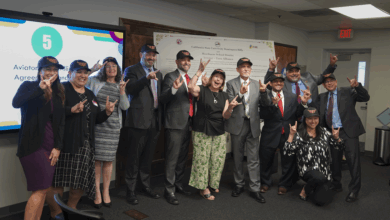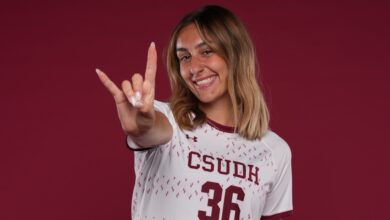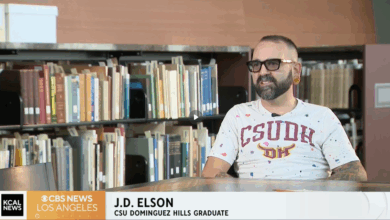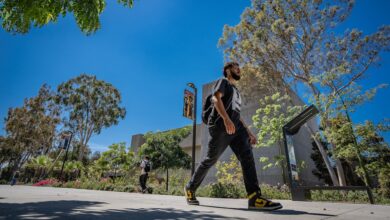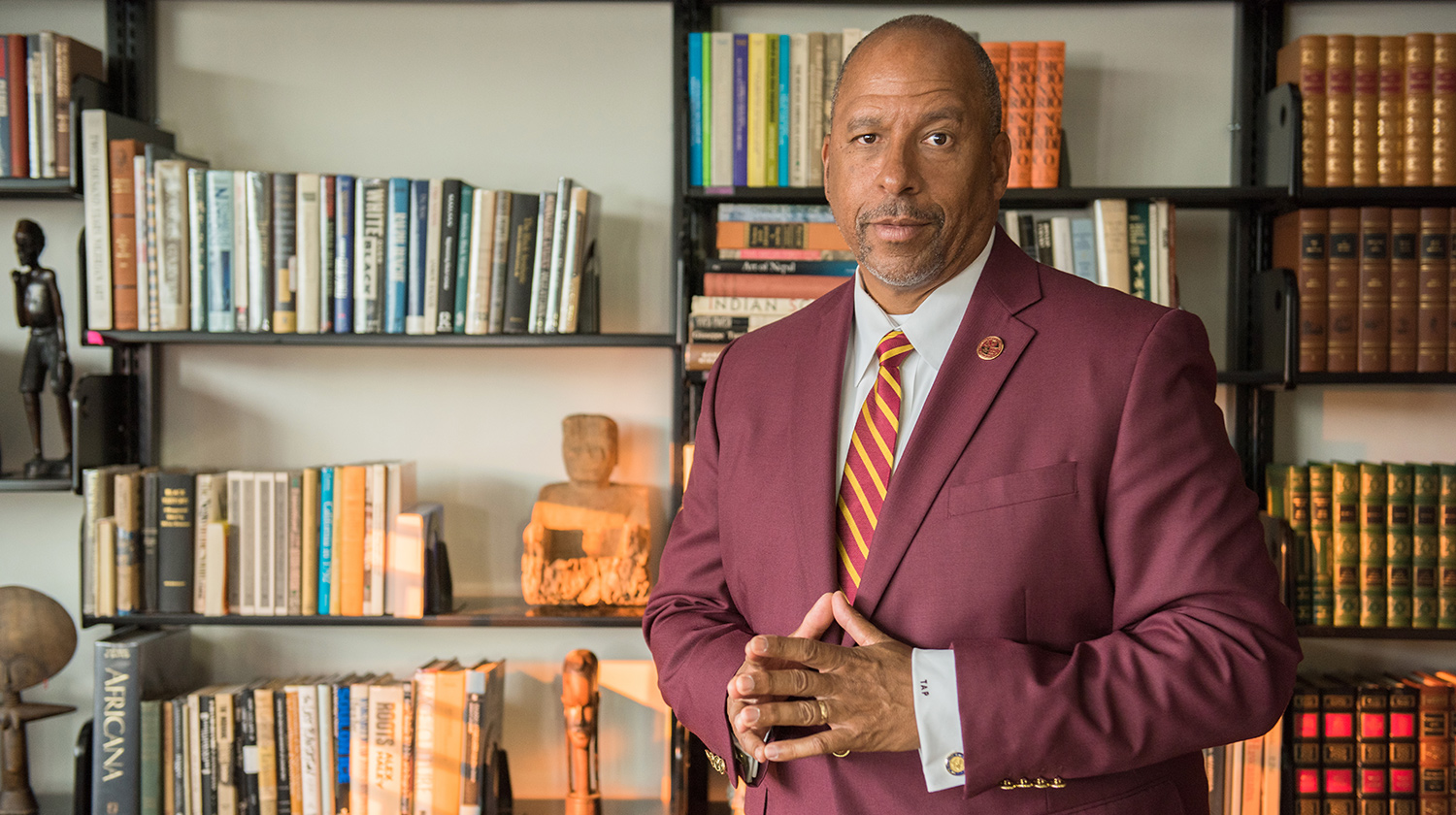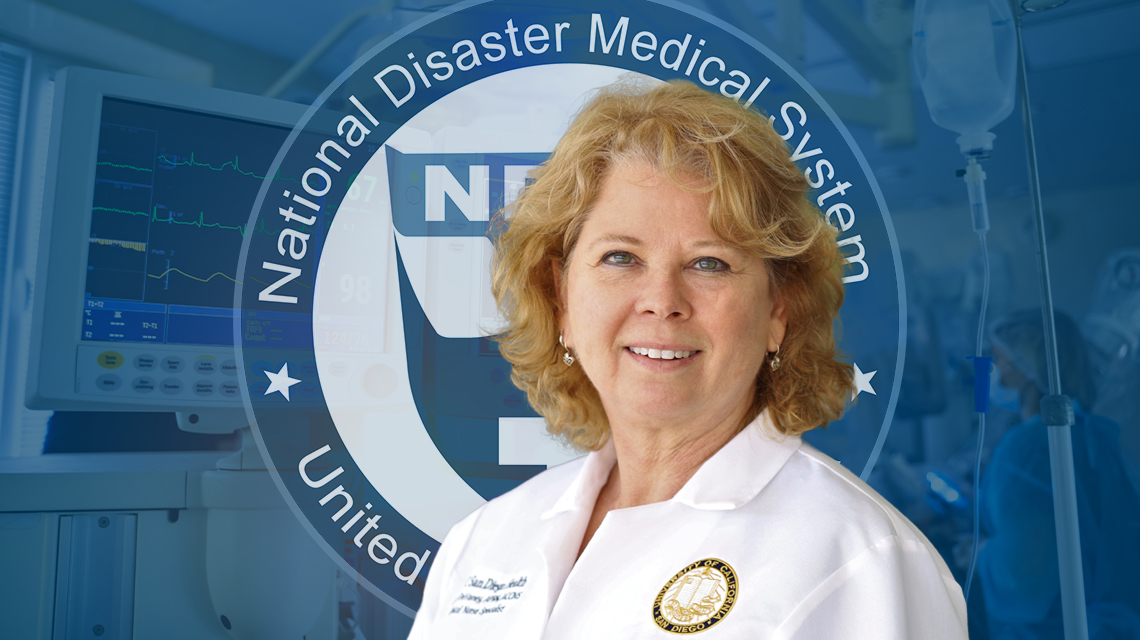
As a member of the San Diego-based Disaster Medical Assistance Team (DMAT), part of the National Disaster Medical System (NDMS), California State University, Dominguez Hills alumna Julie DeVaney (’05, MS, Nursing) has traveled across the country, assisting local health care workers in emergency situations. She has helped deal with the aftermath of everything from hurricanes to terrorism (her first deployment was in 2001, after the World Trade Center attacks).
So it is no surprise to see DeVaney on the frontlines in the fight against COVID-19. In 2020, DeVaney spent time at rural hospitals caring for COVID-19 patients, working with or replacing overwhelmed staff and physicians.
“Recently, all our work has been very COVID-related,” says DeVaney, who also works full-time as a clinical nurse specialist at a Southern California hospital, and part-time as a clinical instructor for the CSUDH Clinical Nurse Specialist Program. “I’ve been to two very small hospitals in rural areas. They received a huge influx of COVID patients, but didn’t have the staffing or resources to care for them. The hospitals applied for federal assistance, and our team was flown in.”
DeVaney’s DMAT team consists of about 60 physicians, nurses, respiratory therapists, paramedics, EMTs, and other health care personnel. When deployed, about 30 members of the team are chosen to travel together to the site for a two-week stint. “If things haven’t calmed down in two weeks, they’ll replace us with another team,” she says.
The NDMS is a federal program run through the U.S. Department of Health and Human Services. “When there’s a disaster or a natural event or a mass gathering of some sort, we are often called upon to provide medical aid,” says DeVaney. “We usually respond to hurricanes, fires, and things like that.”
The COVID-19 pandemic threw the nation’s health care system into upheaval, overwhelming hospitals and clinics–especially smaller ones in rural areas. During 2020, DeVaney’s team was called up to help out at two hospitals whose staffs weren’t large enough to handle the influx of patients.
In July, DeVaney’s team traveled to a small Arizona community about three hours from Phoenix. Sandwiched between two Native American reservations, the hospital didn’t have enough available staff to treat the COVID-19 patients they were getting. DeVaney and her team helped stabilize the situation before returning home.
In November, her NDMS team was called to Central Wisconsin, in another small community whose local hospital staff had begun to suffer under the strain of the pandemic, with many staff members ill from the Coronavirus. “The health care workers there were happy for the additional support,” says DeVaney. “We were one of several teams who came to support the hospital, each staying for 14 days at a time.”
The team aims to assist workers on the ground, and not to disrupt their on-going operations. Their Wis-consin deployment was so smoothly well-executed that DeVaney adds, “I’m not sure anyone outside of the hospital knew we were there!”
DeVaney has also been doing her part in the fight against COVID-19 through her regular full-time job and her part-time job at CSUDH, helping to teach and train nurses who work on the front lines. She continues to serve on the DMAT and is ready to roll if another situation arises that requires her team to deploy.
“It’s important to me to be able to offer professional medical support to those involved in community emergencies and disasters. I find purpose in the midst of chaos by supporting and providing health care when these types of situations arise.”




